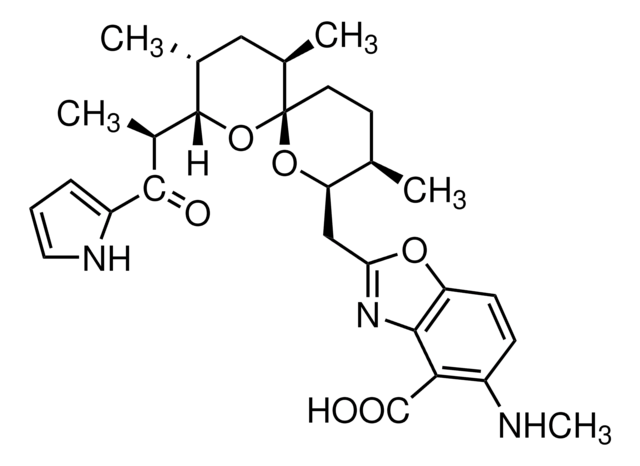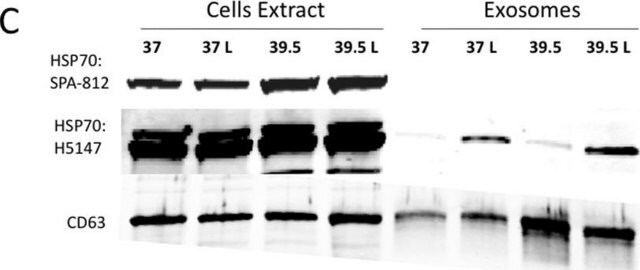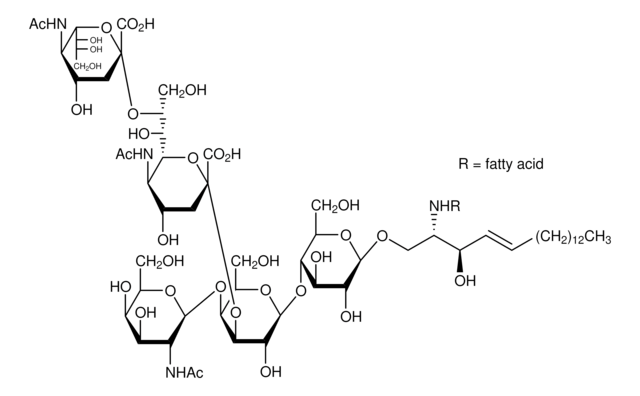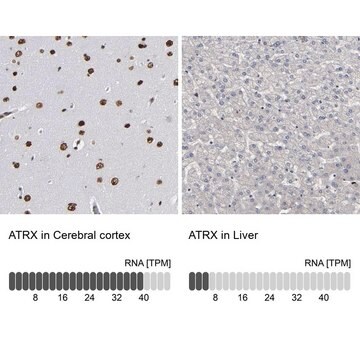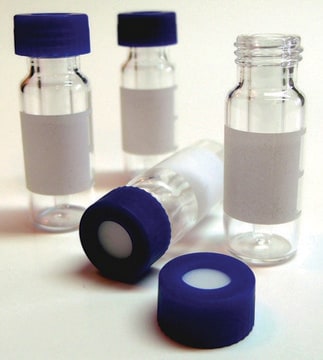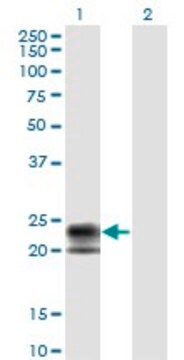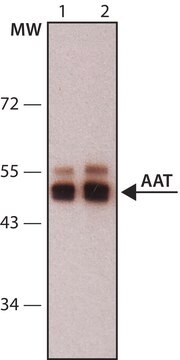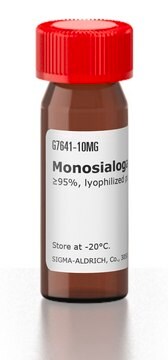SRP3010
BCMA human
recombinant, expressed in E. coli, ≥98% (SDS-PAGE), ≥98% (HPLC), suitable for cell culture
Sinônimo(s):
B-Cell Maturation Antigen, BCM, TNFRSF17
Faça loginpara ver os preços organizacionais e de contrato
About This Item
Código UNSPSC:
12352202
NACRES:
NA.32
Produtos recomendados
fonte biológica
human
recombinante
expressed in E. coli
Ensaio
≥98% (HPLC)
≥98% (SDS-PAGE)
forma
lyophilized
peso molecular
5.3 kDa
embalagem
pkg of 20 μg
técnica(s)
cell culture | mammalian: suitable
Impurezas
<0.1 EU/μg endotoxin, tested
nº de adesão UniProt
Condições de expedição
wet ice
temperatura de armazenamento
−20°C
Informações sobre genes
human ... TNFRSF17(608)
Descrição geral
B-cell maturation antigen (BCMA) or tumor necrosis factor receptor superfamily member 17(TNFRSF17), a member of the tumor necrosis factor (TNF) receptor superfamily, binds to B-cell–activating factor (BAFF) and a proliferation-inducing ligand (APRIL). BCMA is expressed on mature B-cells and other B-cell lines. The human BCMA gene codes for a 184 amino acid type I transmembrane protein, which contains a 54 amino acid extracellular domain, a 23 amino acid transmembrane domain, and a 107 amino acid cytoplasmic domain. Recombinant soluble human BCMA is a 50 amino acid polypeptide (5.3kDa) comprising the TNFR homologous region of the BCMA protein.
Ações bioquímicas/fisiológicas
B-cell maturation antigen (BCMA) or tumor necrosis factor receptor superfamily member 17 (TNFRSF17) plays an important role in B cell development, function and regulation. BCMA also has the capability to activate nuclear factor-κB (NF-κB), janus kinase (JNK) and mitogen activated protein kinases (MAPKs). The protein is expressed in certain cancers like glioblastoma, chronic lymphocytic leukemia, Hodgkin lymphoma and multiple myeloma. It has a role in the maintenance of survival of long-lived plasma cells in bone marrow.
Sequência
AGQCSQNEYF DSLLHACIPC QLRCSSNTPP LTCQRYCNAS VTNSVKGTNA
forma física
Lyophilized with no additives.
Reconstituição
Centrifuge the vial prior to opening. Reconstitute in water to a concentration of 0.1-1.0 mg/ml. Do not vortex. This solution can be stored at 2-8°C for up to 1 week. For extended storage, it is recommended to further dilute in a buffer containing a carrier protein (example 0.1% BSA) and store in working aliquots at -20°C to -80°C
Código de classe de armazenamento
11 - Combustible Solids
Classe de risco de água (WGK)
WGK 3
Certificados de análise (COA)
Busque Certificados de análise (COA) digitando o Número do Lote do produto. Os números de lote e remessa podem ser encontrados no rótulo de um produto após a palavra “Lot” ou “Batch”.
Já possui este produto?
Encontre a documentação dos produtos que você adquiriu recentemente na biblioteca de documentos.
B cell maturation antigen, the receptor for a proliferation-inducing ligand and B cell-activating factor of the TNF family, induces antigen presentation in B cells.
Yang M
Journal of Immunology, 175(5), 2814-2824 (2005)
Christine M Coquery et al.
Critical reviews in immunology, 32(4), 287-305 (2012-12-15)
B cell maturation antigen (BCMA) is a tumor necrosis family receptor (TNFR) member that is predominantly expressed on terminally differentiated B cells and, upon binding to its ligands B cell activator of the TNF family (BAFF) and a proliferation inducing
P Rennert et al.
The Journal of experimental medicine, 192(11), 1677-1684 (2000-12-06)
A proliferation-inducing ligand (APRIL) is a ligand of the tumor necrosis factor (TNF) family that stimulates tumor cell growth in vitro and in vivo. Expression of APRIL is highly upregulated in many tumors including colon and prostate carcinomas. Here we
Han-Wen Huang et al.
Proceedings of the National Academy of Sciences of the United States of America, 110(27), 10928-10933 (2013-06-19)
Glycosylation, an important posttranslational modification process, can modulate the structure and function of proteins, but its effect on the properties of plasma cells is largely unknown. In this study, we identified a panel of glycoproteins by click reaction with alkynyl
G Yu et al.
Nature immunology, 1(3), 252-256 (2001-03-23)
We report that the tumor neurosis factor homolog APRIL (a proliferation-inducing ligand) stimulates in vitro proliferation of primary B and T cells and increases spleen weight due to accumulation of B cells in vivo. APRIL functions via binding to BCMA
Nossa equipe de cientistas tem experiência em todas as áreas de pesquisa, incluindo Life Sciences, ciência de materiais, síntese química, cromatografia, química analítica e muitas outras.
Entre em contato com a assistência técnica